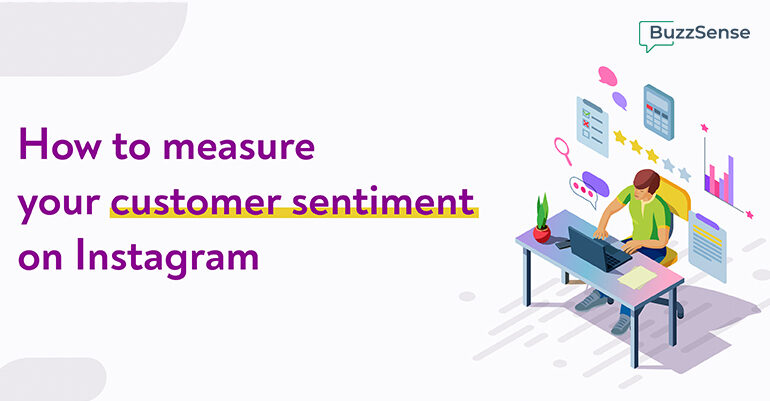Healthcare reputation management is super crucial in a digitally driven world. The first impression can affect your brand when patients search for a physician or your hospital name online. Earlier, doctors and hospitals acquired patients by word of mouth, but now marketing has evolved. Similar approaches are no longer effective. Nowadays, more patients are acquired from paid ads, social media, organic searches, and physician directories.
Building a high reputation score on google and review sites will attract new patients with minimal investment. There are tremendous opportunities to have the best customer experience and outrank your competitors on the search results. When you spend too much time and effort asking patients for online reviews, your medical practice struggles with negative reviews, or even if reputation management is non-existent, it can cost you more money. Here are some key stats to provide you with an understanding of the significance of healthcare reputation management strategy:
Online reviews are an essential component of the healthcare reputation management

Best practices in healthcare reputation management
Here are some effective strategies for managing your medical practice’s online reputation.
1. Add adequate information to your online listings
Gaining complete control of your listings across Google My Business and other review platforms will help you stay updated on the patient’s reviews. As every prospective patient starts their search for a healthcare provider with a Google search, having a credible Google listing profile gains a more favorable impression to book an appointment with your healthcare services.
Ensure all the information about your business and specialties are correct, including operational hours, hospital/medical practice address, pictures of your infrastructure, and patient reviews. Even though there are numerous review sites for medical practices, you can start by focusing on popular listing sites relevant to your practice, such as Healthgrades, RateMDs, WebMD, Zocdoc, Caredash, and Facebook.
2. Encourage happy patients to leave good reviews

Happy patients are more willing to write online reviews about their experience. Always ask your patients to leave a review and feedback after their appointment to understand better what is good and what can be improved. Moreover, this will attract more attention, increase ratings, and help build authority as a trustworthy healthcare provider. You can also use the testimonials from past patients on your website to help drive more patients.
3. Monitor your online reviews consistently
Fake or negative reviews can harm your reputation in a matter of minutes. This could worsen your online reputation, accompanying the loss of patients. People trust a business after reading positive online reviews. A study shows that 74% of consumers trust positive reviews of local businesses. So, you must stay updated on what people say about your medical practice every day.
Fortunately, you can use a dedicated reputation management tool or set up Google alerts to notify you whenever your healthcare brand name is mentioned online. These steps will allow you to improve the reputation score of your medical practice. It also allows you to interact directly with your patients and resolve issues quickly, promote positive interaction and reduce the impact of negative reviews.
4. Address negative reviews objectively
70% of patients who share negative reviews feel better if their concerns are addressed. Think about the problem from the patient’s viewpoint and handle the negative reviews with the utmost professionalism. Acknowledging unhappy patients with a response that you’re looking into the matter can help improve patient satisfaction. Avoid being emotional when acting on the issue. Determine the appropriate action to protect your reputation and long-term customer retention.
5. Conduct patient satisfaction surveys
The primary responsibility of the medical practice is to help patients, and you may have to monitor the causes of unhappiness to improve them. Understanding patient experiences immediately after their appointment can impact your reputation; You can conduct patient satisfaction survey sessions where they provide you with the most honest and valuable responses that allow you to build trust. It helps in shifting the approach from critical reviews to helpful feedback.
6. Train your customer support resources
Patients value friendliness and ease of scheduling appointments over any other information. Reviewers often write about every individual they interact with in a medical practice rather than considering the whole healthcare service offered.
Your customer service staff should implement the best practices and professional behavior in all situations. Ask them to follow company policies to ensure reputation success. This helps your patients believe in your commitment and improves overall patient satisfaction.
7. Build thought leadership in your medical practice
Establishing yourself as a thought leader in your practice is one of the effective strategies to build credibility and reputation for your healthcare services. Creating relevant content, such as articles and videos on your treatments, and regularly maintaining an active social media presence can increase awareness and boost your online reputation.
You can also answer audience questions and keep interacting with them by responding to their reviews and comments, which can reflect good results in your search engine rankings.
8. Automate the patient review management process
Automation can save you a lot of time. You can implement an efficient reputation management tool to monitor your patient reviews dedicatedly. The tool can simplify the entire process so you can focus on skyrocketing your patient experience ratings across multiple review sites and social platforms. Automation capabilities can help you share review invites and respond to reviews promptly to maintain positive interactions with patients. It allows you to collect, analyze and manage real-time data.
With BuzzSense, you can improve star ratings and build custom reports. Also, run AI-powered sentiment analysis to study the real emotions of your patients from time to time and conduct surveys to understand what your patients need, driving more reputation with minimal effort.
Bottom line
All it takes is one unhappy patient to ruin your online reputation. Negative reviews may threaten your healthcare business’s reputation if you fail to address them appropriately.
It is crucial to have a robust online reputation management strategy in place for any healthcare provider. Reputation management can help you maintain a positive image with a better customer experience and simultaneously monitor your online presence to limit the lasting effects of negative reviews.
Leading your reputation to improve in the long term. But monitoring hundreds of them can be challenging for you and your team without the right reputation management tool.
BuzzSense is a powerful online reputation management tool that lets you take complete control of brand reviews, feedback, and response automation, which helps you avoid reputation threats in the future. Inclusive of a comprehensive toolkit, you will ever need to scale your reputation for high customer satisfaction.
Are you looking to attract more patients and thrive with online reviews? Become a buzz-worthy healthcare brand by taking advantage of BuzzSense’s free trial.




